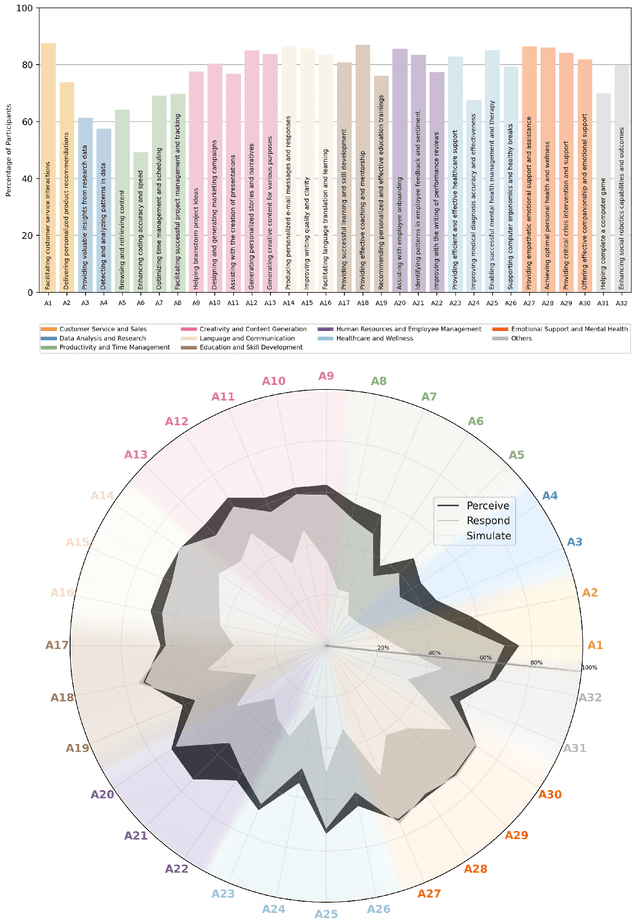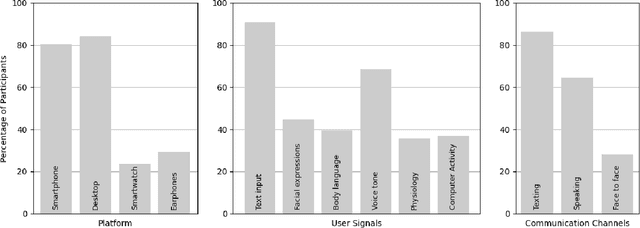Affective Conversational Agents: Understanding Expectations and Personal Influences
Paper and Code
Oct 19, 2023



The rise of AI conversational agents has broadened opportunities to enhance human capabilities across various domains. As these agents become more prevalent, it is crucial to investigate the impact of different affective abilities on their performance and user experience. In this study, we surveyed 745 respondents to understand the expectations and preferences regarding affective skills in various applications. Specifically, we assessed preferences concerning AI agents that can perceive, respond to, and simulate emotions across 32 distinct scenarios. Our results indicate a preference for scenarios that involve human interaction, emotional support, and creative tasks, with influences from factors such as emotional reappraisal and personality traits. Overall, the desired affective skills in AI agents depend largely on the application's context and nature, emphasizing the need for adaptability and context-awareness in the design of affective AI conversational agents.
 Add to Chrome
Add to Chrome Add to Firefox
Add to Firefox Add to Edge
Add to Edge